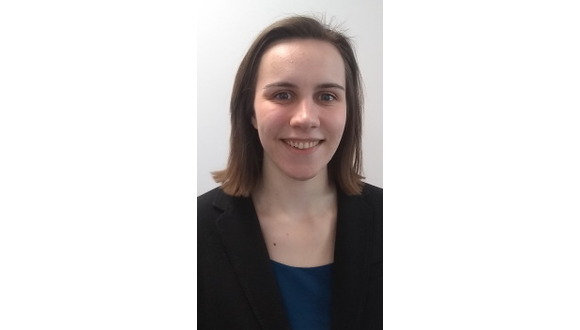Tue, 14 November, 2023
TWI has been working as a partner in the MAST3RBoost project, to supply improved hydrogen storage solutions for the clean transport of the future.
The project has brought together experts from 13 different organisations, including TWI, to develop a new generation of ultraporous materials for high-density hydrogen storage.
We took some time to speak with TWI data analyst, Georgia Schneider to find out more about her background and why she joined the project.

Can you tell us about your background?
I am currently a data analyst at TWI. I work on a variety of projects involving complex or high-dimensional data. Before starting at TWI, I worked as a mathematics academic and cryptographer.
Why did you join the Mast3rBoost Project?
I was very keen to be involved in a machine learning project and sought one out specifically. Materials informatics is the application of machine learning methods to materials databases to improve the selection, development, and discovery of materials. This is an emerging field of study that has driven some very influential discoveries over the last decade, so it is very exciting to have learnt so much about the field and to be able to apply my knowledge.
What do you hope the outcomes and benefits of your participation in the project will be?
I am hoping to apply machine learning to the materials data provided by the University of Nottingham to develop and select the best materials for hydrogen storage.
Hydrogen is very important as a potential green energy source. Hydrogen storage at low compression is usually difficult, but can be done with ultraporous materials. We are hoping to develop ultraporous materials with increased hydrogen capacity.
Why is the Mast3rBoost project important right now?
Renewable energy has become much cheaper and more efficient, but still has many drawbacks. It is very dependent on weather conditions, making energy storage much more important. It also requires either connection to the grid or batteries, which is not always feasible for certain applications like long-distance shipping and aerospace or heavy industry like steel and cement manufacturing. This means that hydrogen will probably be a crucial part of reaching our climate goals.
Do you have any aspirations to participate in future funded programmes, where you may be paid to help address an engineering challenge?
I am certainly interested in being involved with more material informatics projects. It is very important to be able to develop optimal materials for engineering challenges and I very much enjoy using complex mathematical models to ‘find the needle in the haystack of materials’.
You can find out more about the MAST3RBoost project on the dedicated project website, here.
This project has received funding from the European Union’s Horizon Europe's research and innovation programme under grant agreement No 101058574. TWI's work in this project is funded by Innovate UK under grant no 10040807.